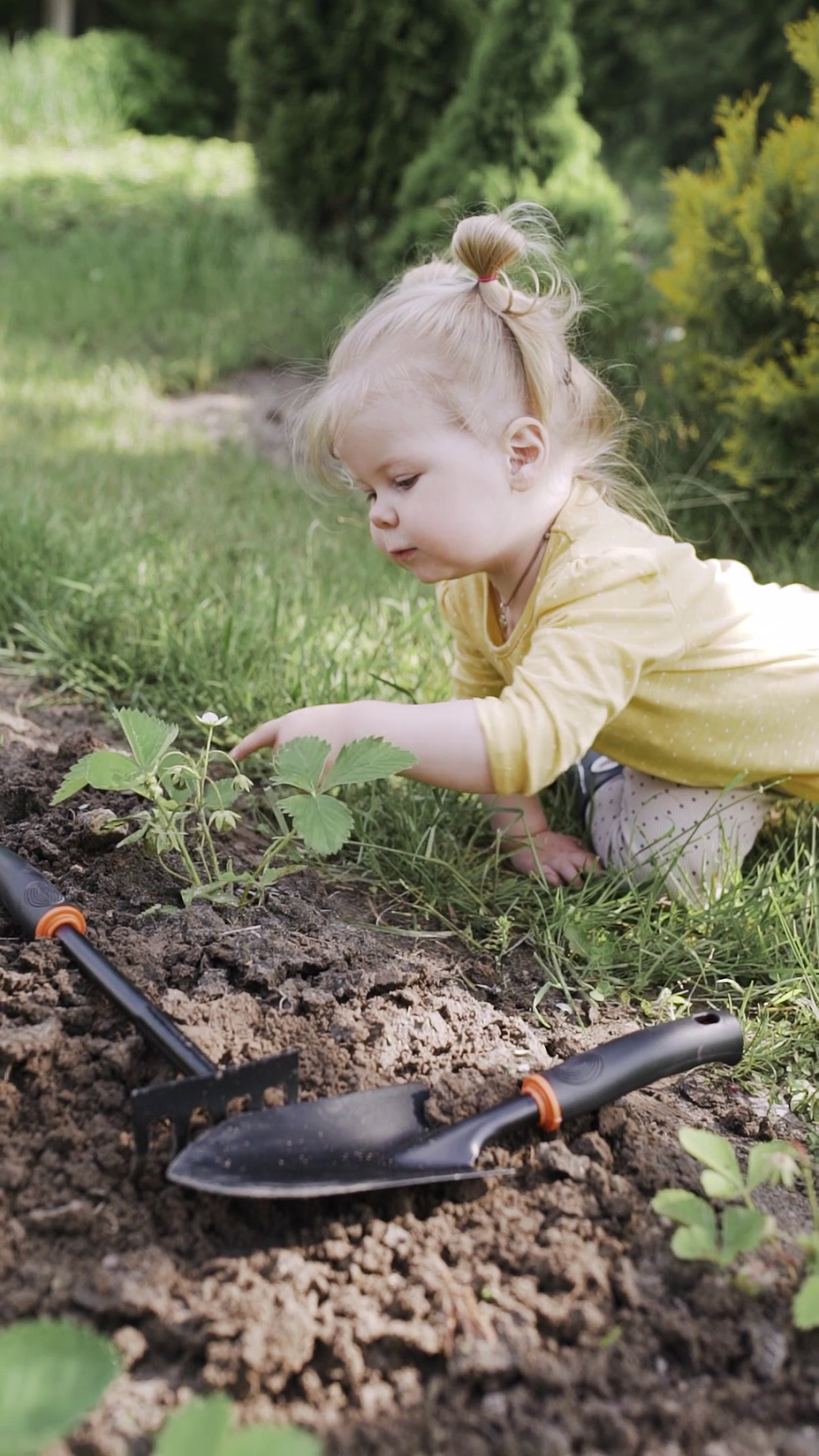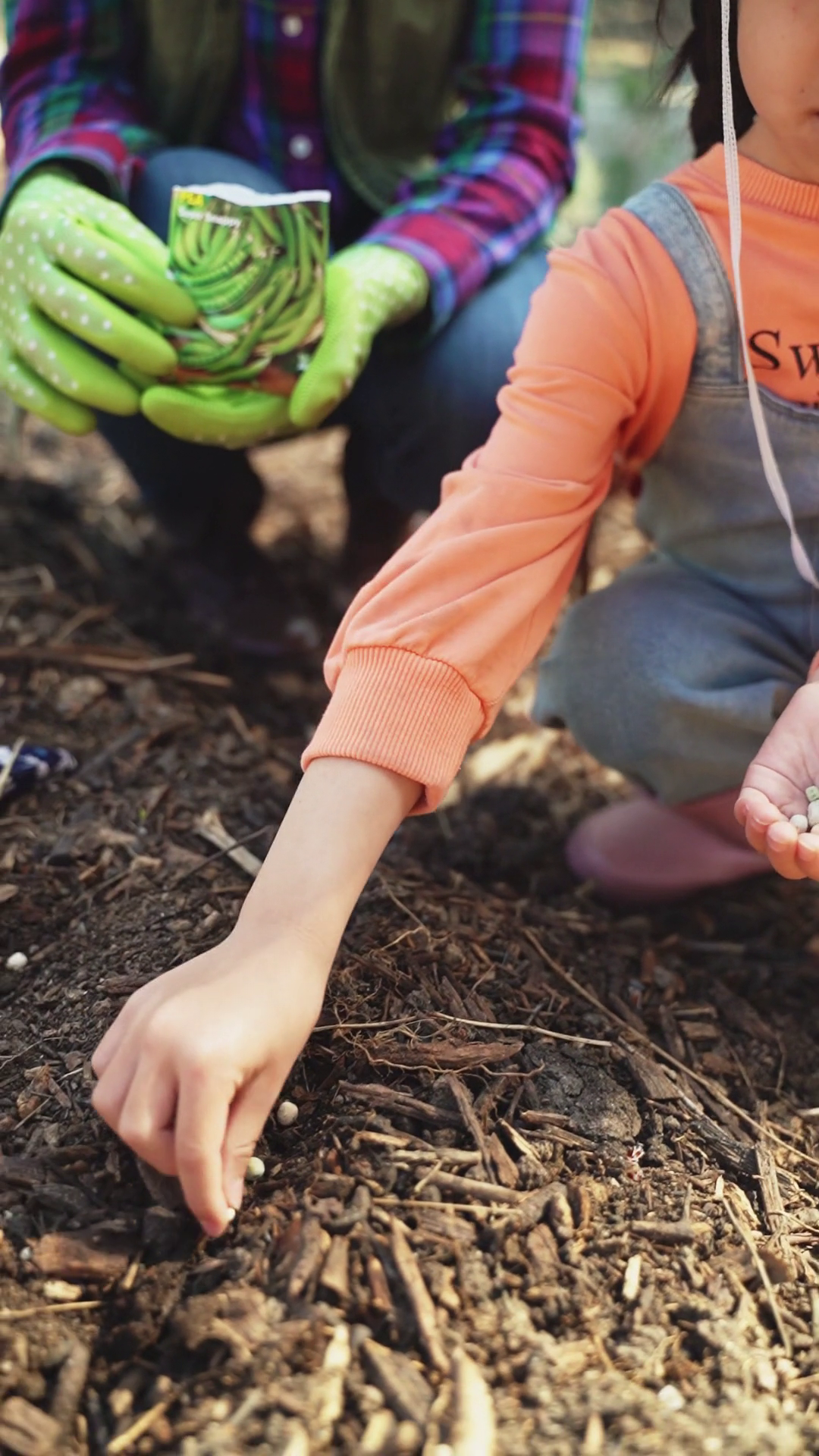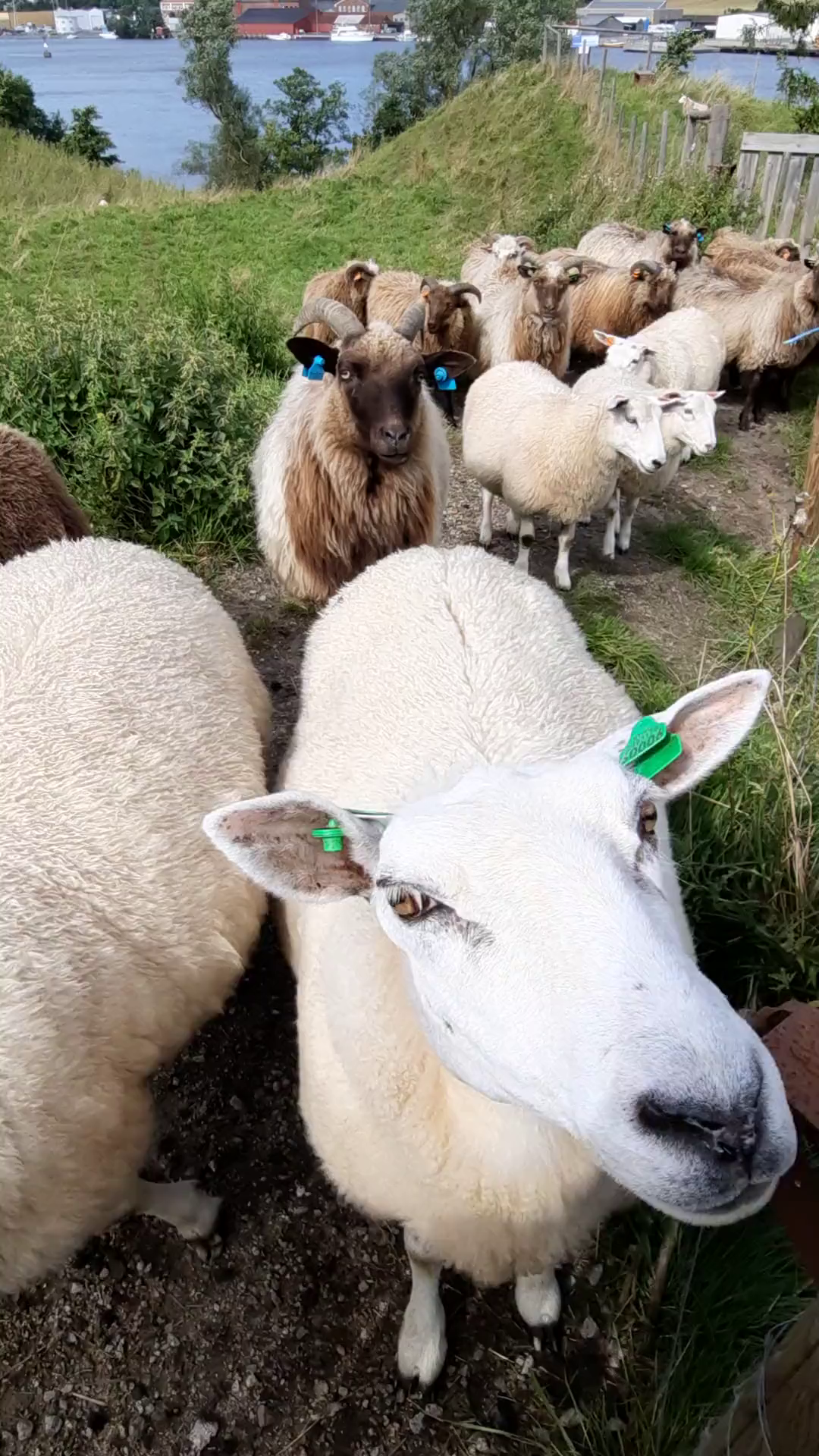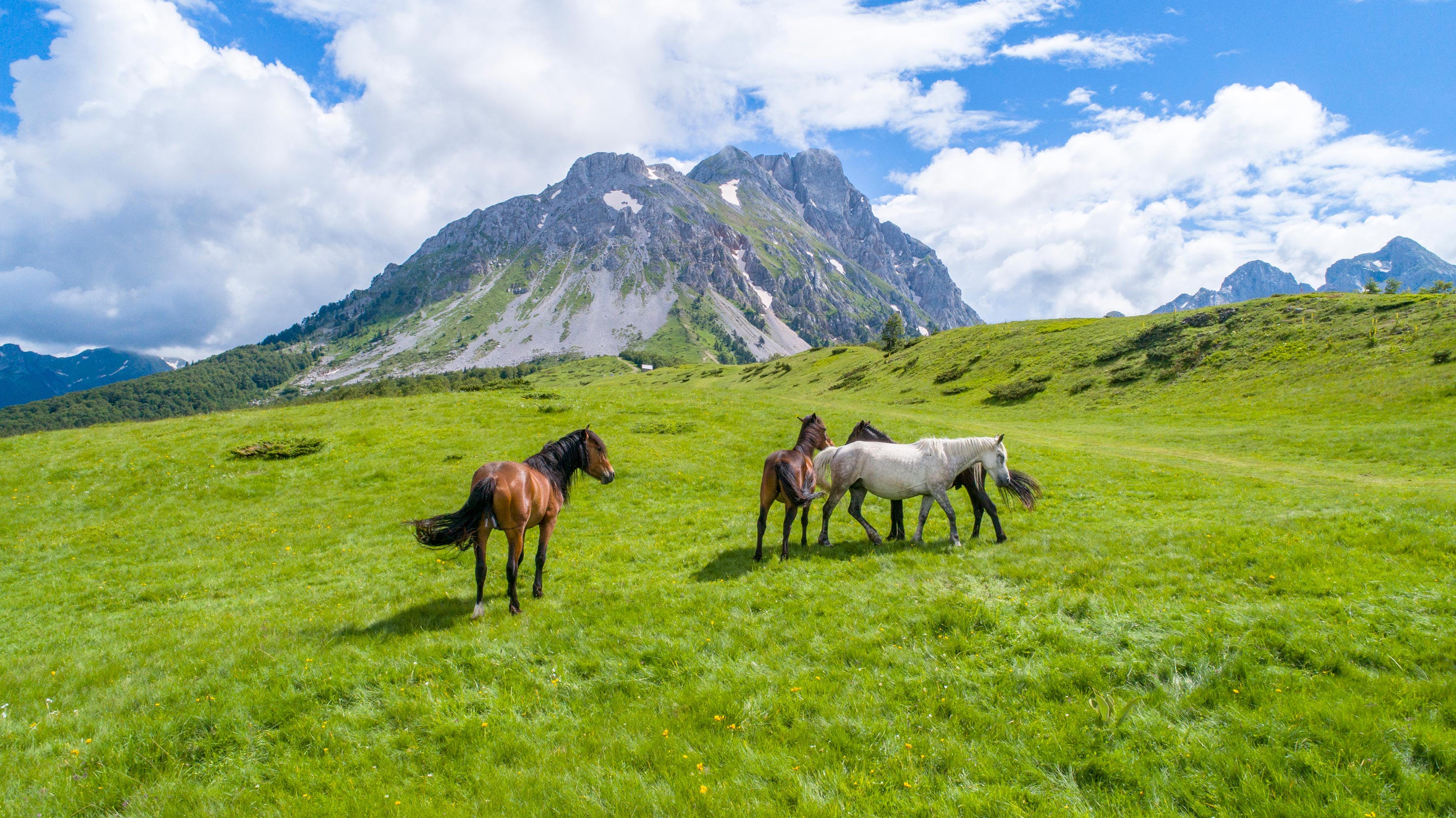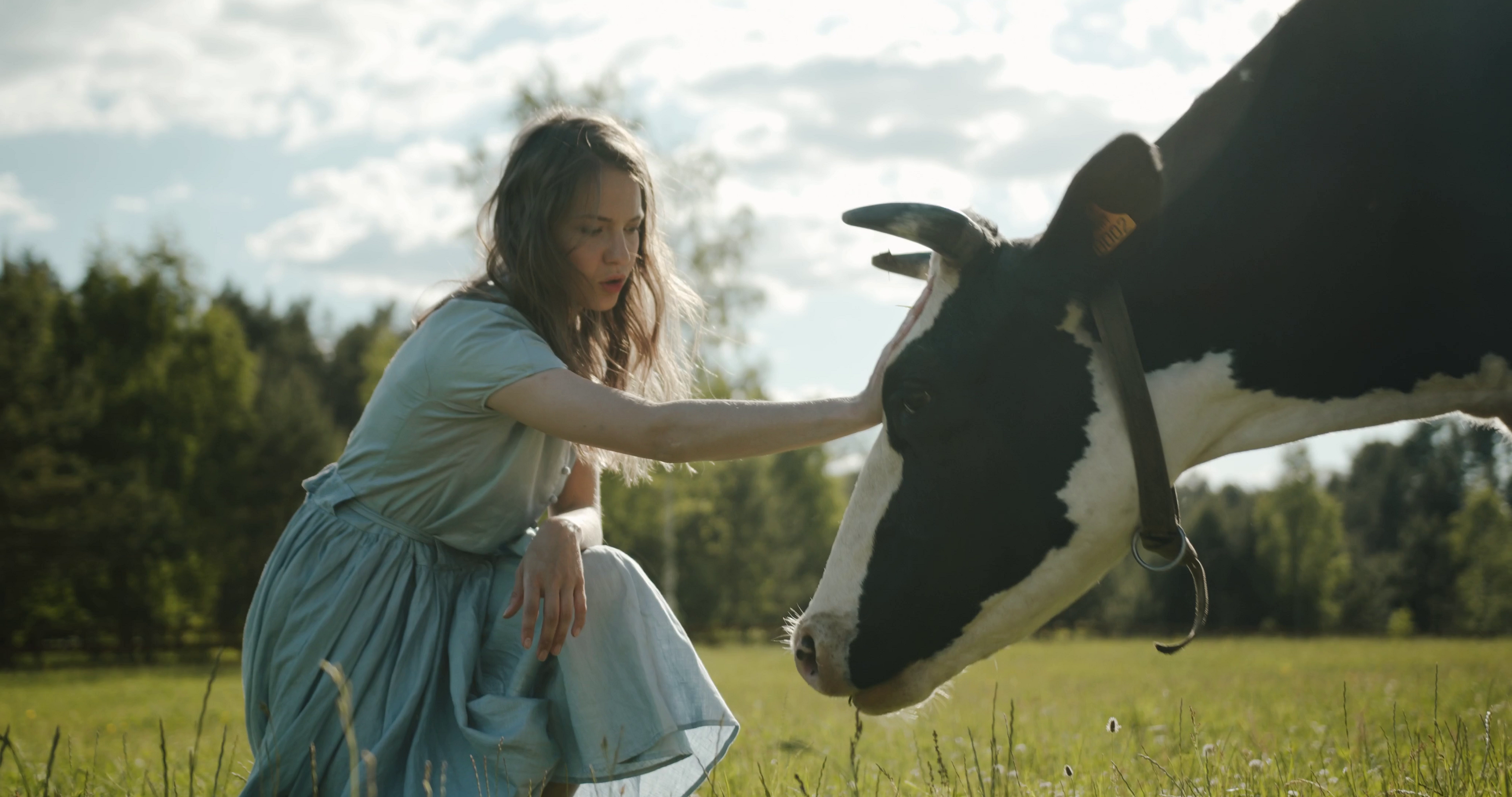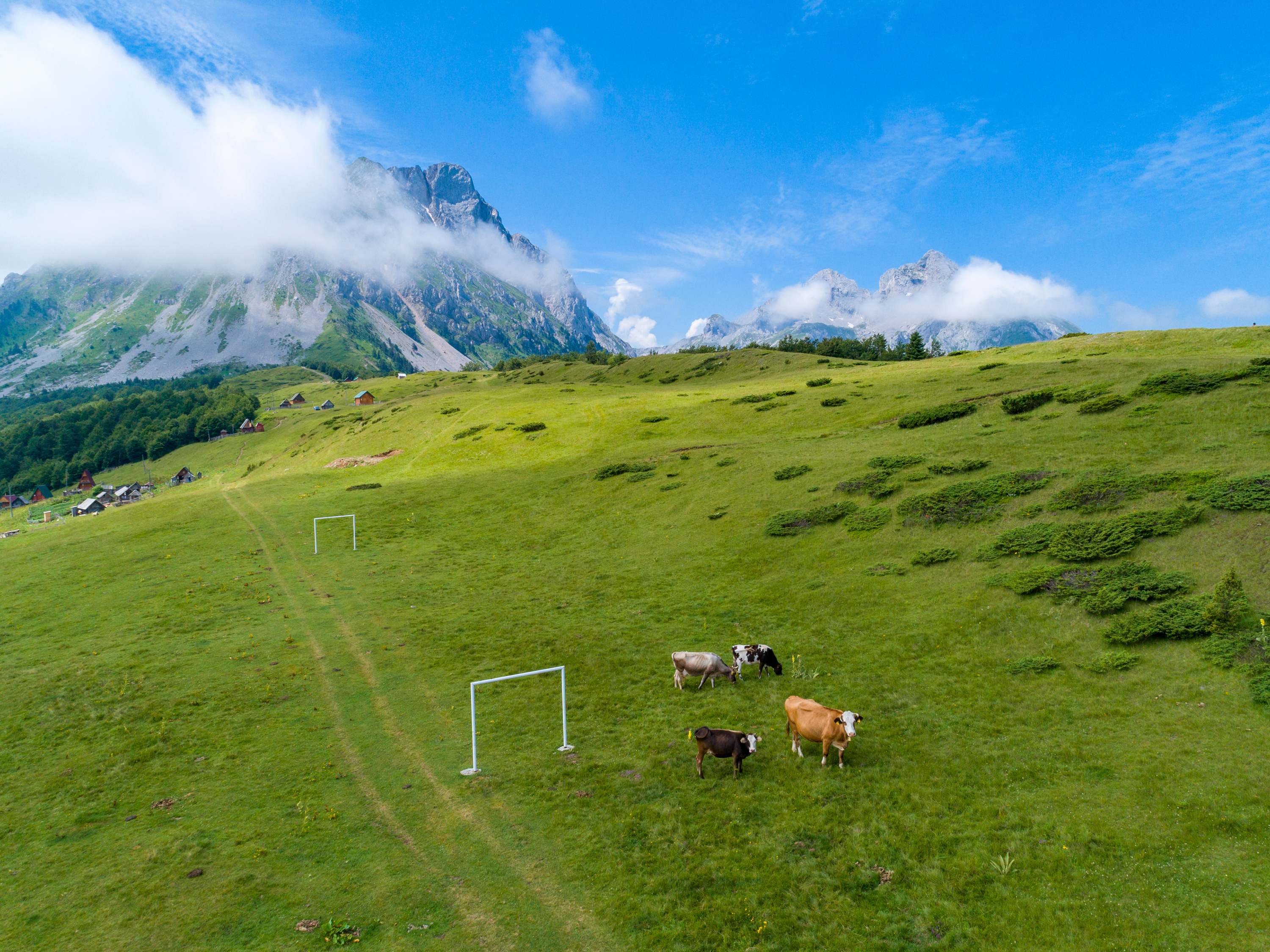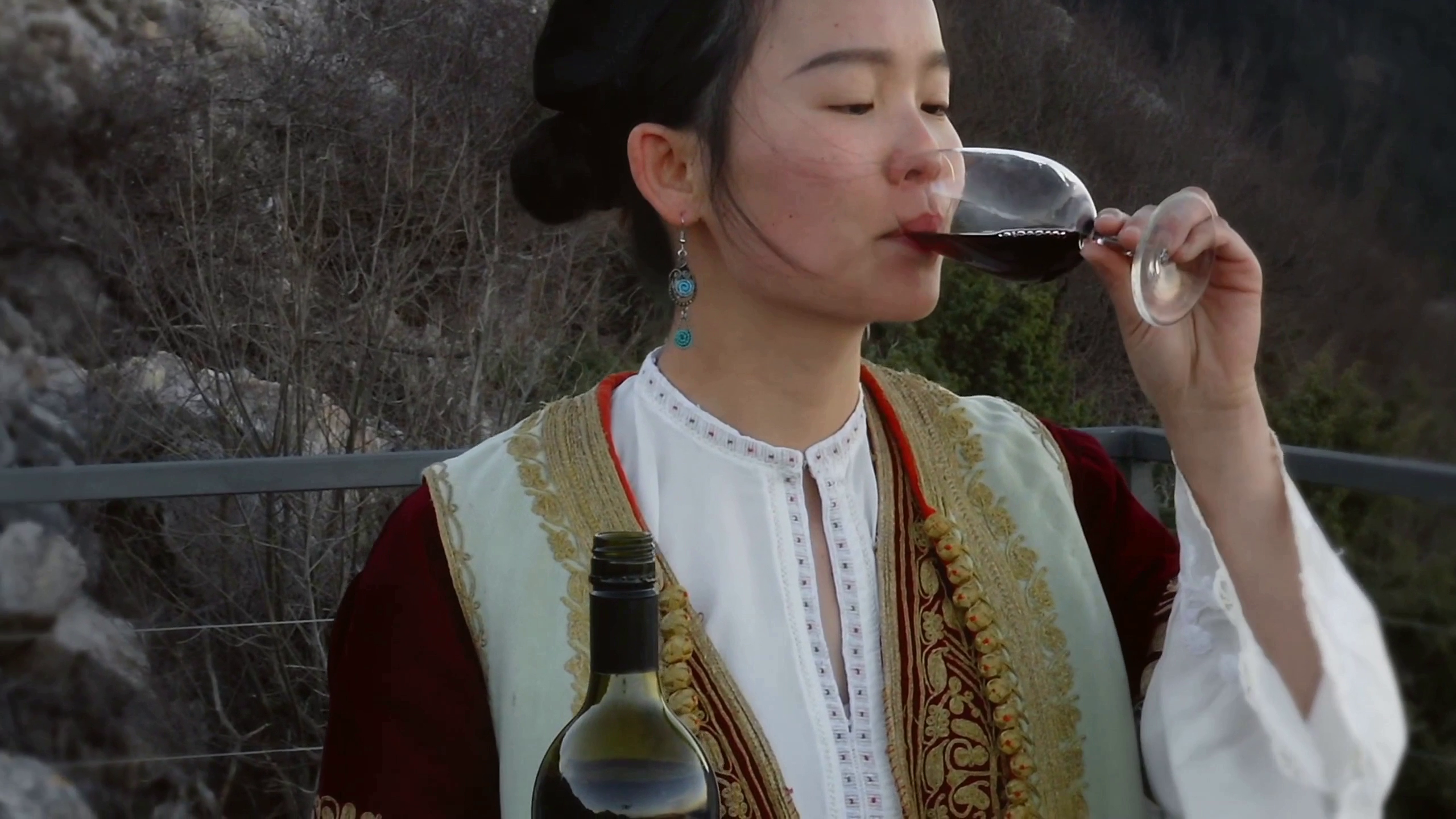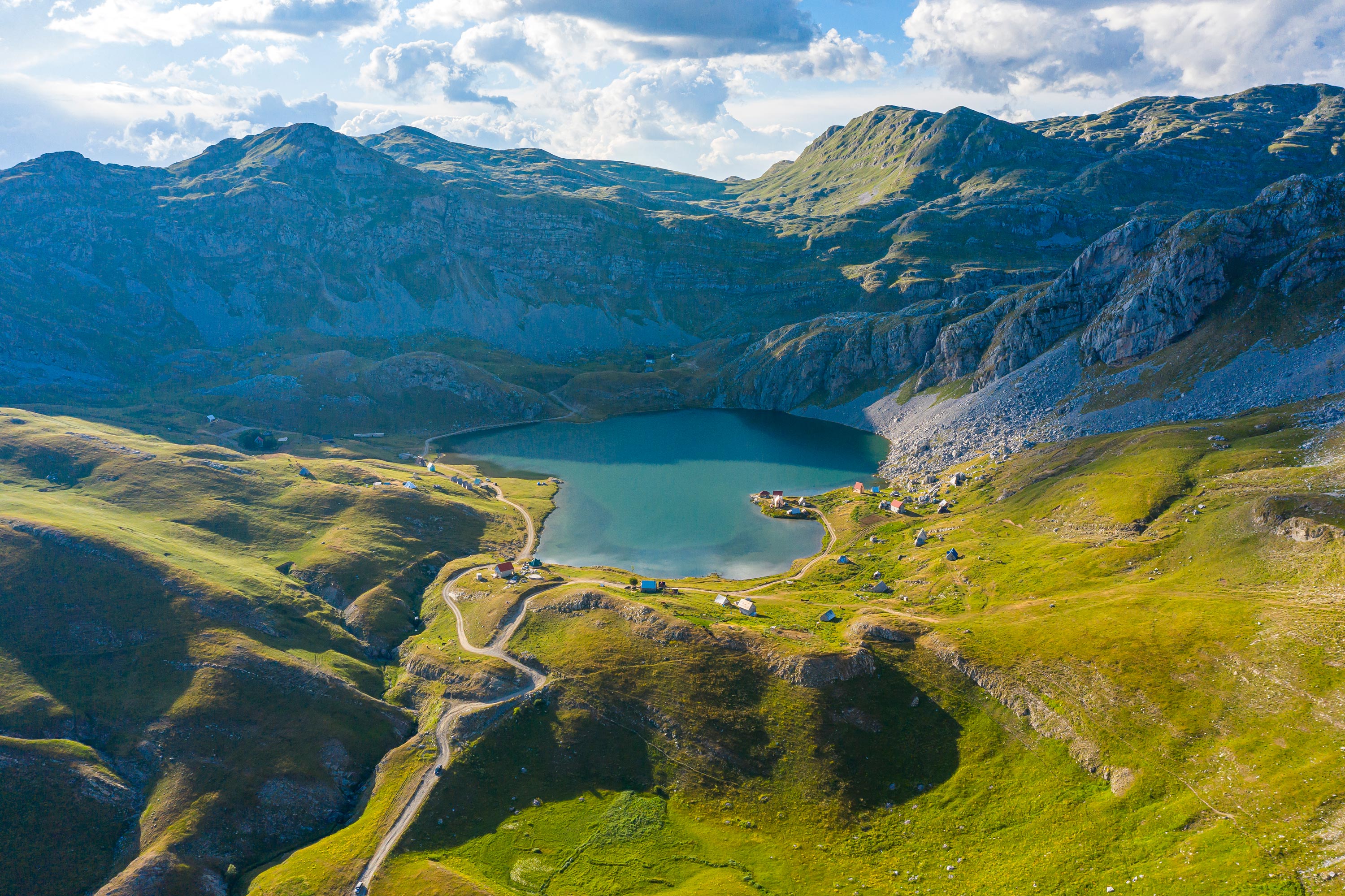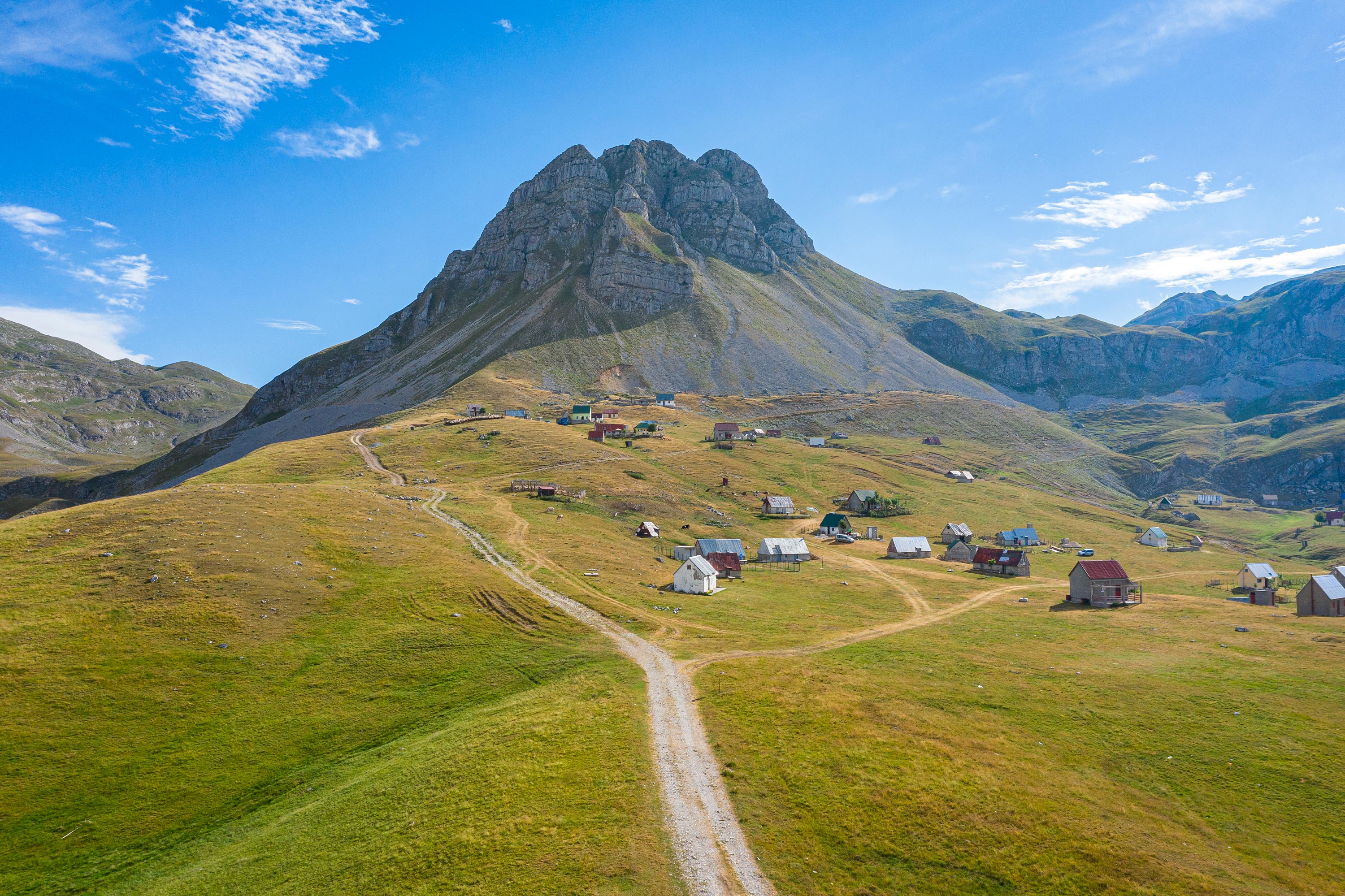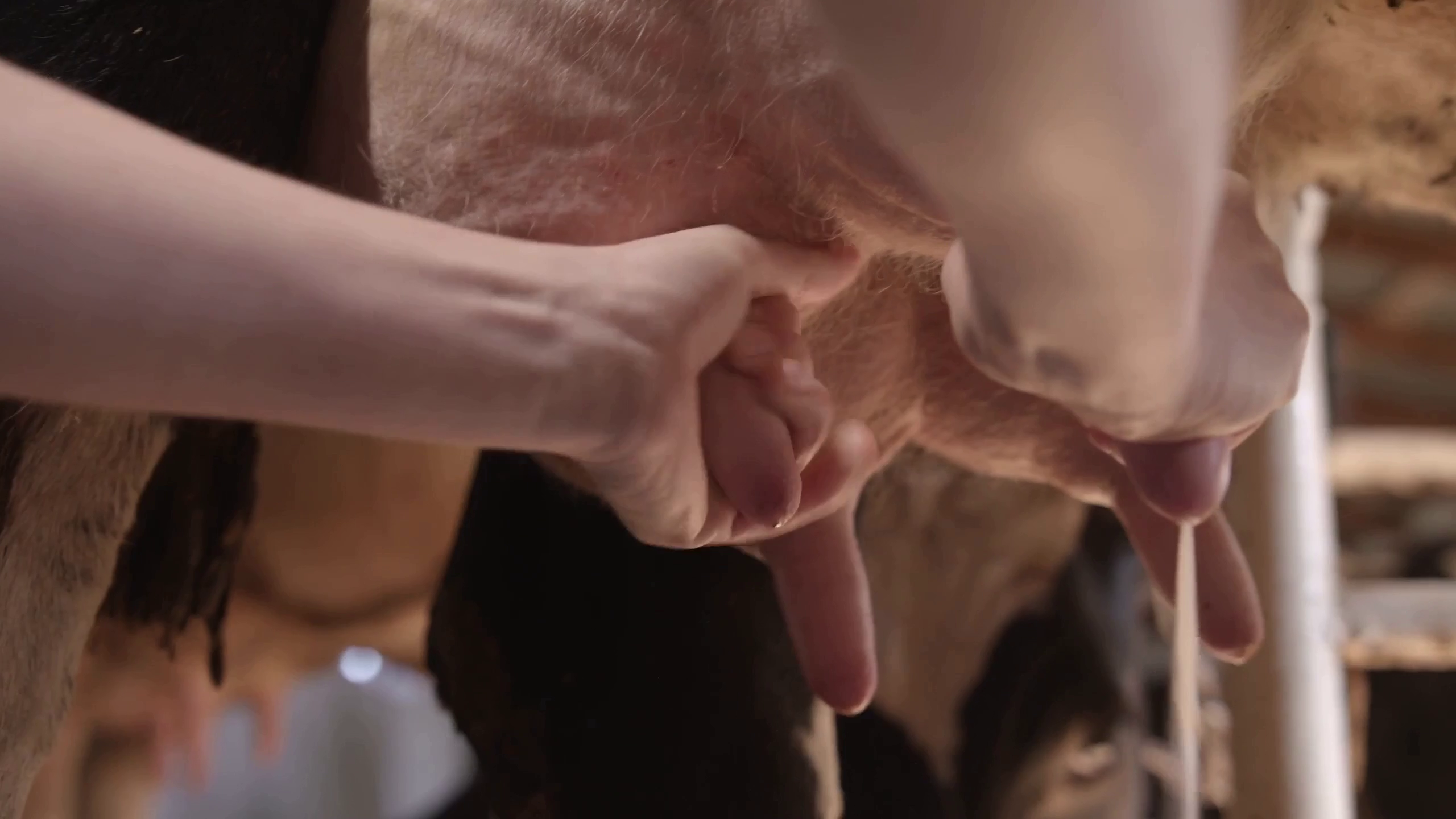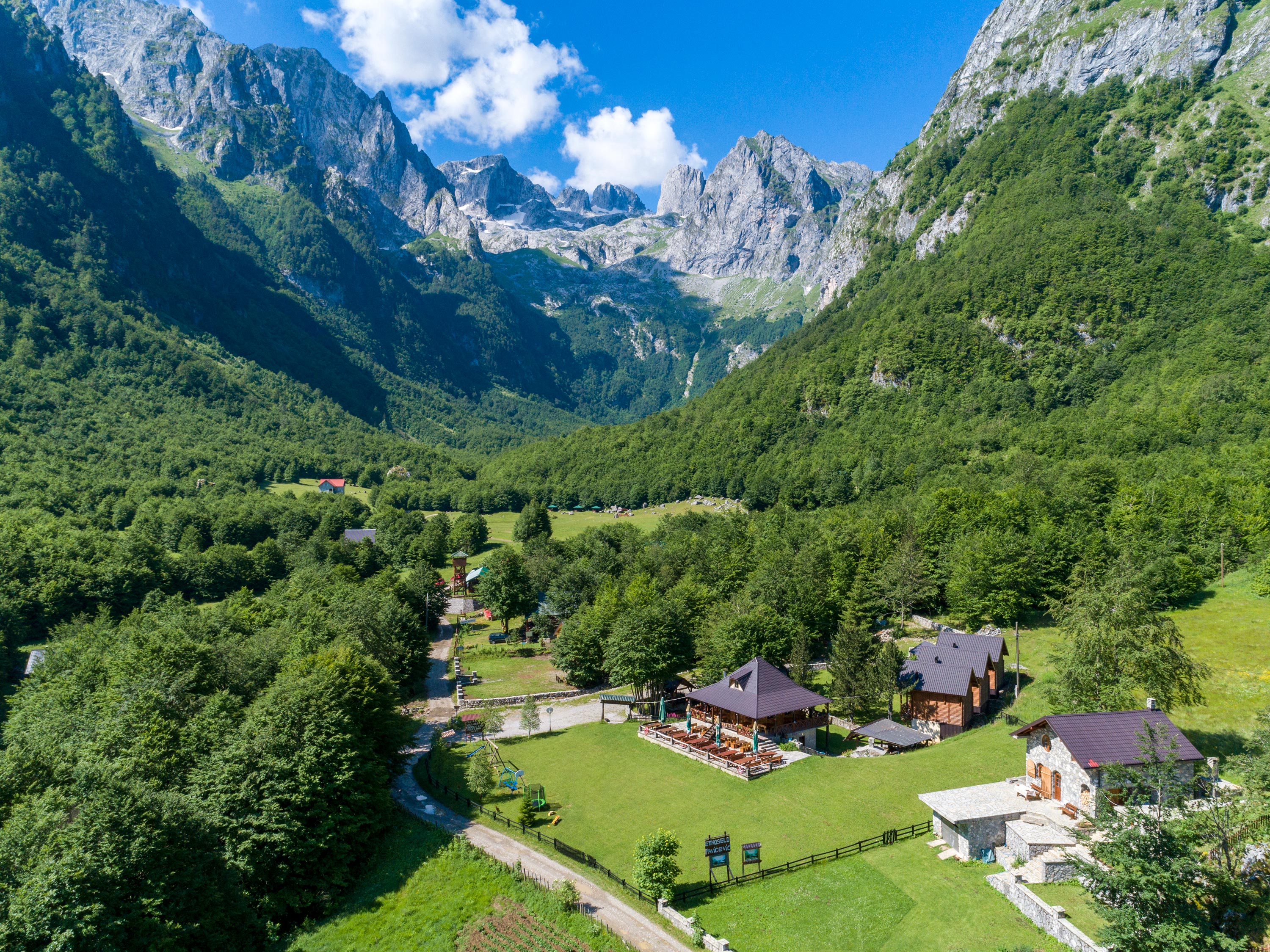Prioritising the places and people that need it the most
Visit village
Visit village
Visit Village is an ”Airbnb” for farms, blending agritourism with modern needs for an active vacation in nature. It enables direct farm stays, offering tourists a chance to experience rural life while benefiting from nature’s therapeutic effects. The platform promotes traditional farming, sustainable tourism, and cultural heritage. Beyond recreation, visitors gain hands-on experience in agriculture,from winemaking to organic food production,preserving traditions while supporting rural economies.
Montenegro
National
Mainly rural
It refers to other types of transformations (soft investment)
Yes
2024-08-28
No
No
No
As a representative of an organisation
Visit Village transforms agritourism by creating a unified cross-border platform connecting farms across the Western Balkans.It bridges the gap between rural communities and modern travelers, offering seamless direct bookings while preserving cultural heritage and promoting sustainable tourism.
Visit Village embodies the three core values of the New European Bauhaus:
1Sustainability:We promote eco-friendly tourism, regenerative agriculture, and responsible land use. Farms adopt organic practices, biodiversity conservation, and renewable energy.By positioning rural tourism as an alternative to over-tourism, we contribute to the European Green Transition
2Inclusion:Our platform is accessible to all farms, regardless of size or resources, ensuring equal opportunities for rural entrepreneurs. It connects tourists, digital nomads, families, and individuals in therapeutic programs who benefit from nature-based recovery
3Aesthetics & Experience:Visit Village celebrates rural beauty and traditions,offering hands-on experiences like winemaking, cheese production, fruit harvesting, and apitherapy. It transforms cultural heritage into an interactive journey rather than a passive attraction
We designed Visit Village for tourists, mountaineers&outdoor enthusiasts,children&adults in therapeutic processes benefiting from apitherapy, phytotherapy and farm-based motor skill development programs,families focused on health&well-being and freelancers&digital nomads.
Small farms in the Balkans face economic struggles, depopulation, and lack of market access. Visit Village tackles these challenges by increasing farm income,revitalizing rural communities, and preserving cultural traditions. It positions farm stays as a sustainable alternative to mass tourism, fostering a deeper connection between people,nature and heritage. By merging sustainability, culture, and well-being,Visit Village isn’t just about farm stays-it’s about creating lasting bonds between people,land and tradition.
Visit Village embodies the three core values of the New European Bauhaus:
1Sustainability:We promote eco-friendly tourism, regenerative agriculture, and responsible land use. Farms adopt organic practices, biodiversity conservation, and renewable energy.By positioning rural tourism as an alternative to over-tourism, we contribute to the European Green Transition
2Inclusion:Our platform is accessible to all farms, regardless of size or resources, ensuring equal opportunities for rural entrepreneurs. It connects tourists, digital nomads, families, and individuals in therapeutic programs who benefit from nature-based recovery
3Aesthetics & Experience:Visit Village celebrates rural beauty and traditions,offering hands-on experiences like winemaking, cheese production, fruit harvesting, and apitherapy. It transforms cultural heritage into an interactive journey rather than a passive attraction
We designed Visit Village for tourists, mountaineers&outdoor enthusiasts,children&adults in therapeutic processes benefiting from apitherapy, phytotherapy and farm-based motor skill development programs,families focused on health&well-being and freelancers&digital nomads.
Small farms in the Balkans face economic struggles, depopulation, and lack of market access. Visit Village tackles these challenges by increasing farm income,revitalizing rural communities, and preserving cultural traditions. It positions farm stays as a sustainable alternative to mass tourism, fostering a deeper connection between people,nature and heritage. By merging sustainability, culture, and well-being,Visit Village isn’t just about farm stays-it’s about creating lasting bonds between people,land and tradition.
Agrotourism
Sustainable farming
Farm stays
Cultural immersion
Environmental conservation
Visit Village promotes sustainability by integrating eco-friendly tourism with regenerative agriculture, ensuring long-term environmental,economic and social benefits for rural communities. The platform encourages farms to adopt sustainable practices such as organic farming, biodiversity conservation, and renewable energy, reducing environmental impact while preserving traditional agricultural knowledge.By promoting farm-to-table experiences,it minimizes supply chain emissions and supports local economies,making rural tourism a model of circular sustainability.
The project reduces over-tourism in urban areas by diverting travel demand to rural locations, preventing excessive resource consumption and supporting decentralized economic growth. Small farms gain direct market access without intermediaries,increasing their financial stability and incentivizing them to maintain environmentally responsible operations. Through its digital approach,Visit Village eliminates unnecessary paper-based marketing and inefficient booking processes, reducing waste while optimizing accessibility for both farmers and visitors.
By ensuring fair opportunities for all farm types,regardless of size or financial background, the project creates a scalable model that can be replicated across different regions.Visitors engage in hands-on experiences such as winemaking,permaculture farming and traditional food production,fostering a deeper connection with sustainable land management and cultural heritage.
Visit Village is exemplary because it demonstrates how rural tourism can be both environmentally conscious and economically viable. By leveraging digital innovation,the platform strengthens sustainable tourism,promotes regional food systems,and enhances ecological awareness. The project provides a replicable framework for responsible tourism that supports local communities while advancing the European Green Transition,proving that sustainability and economic growth can go hand in hand.
The project reduces over-tourism in urban areas by diverting travel demand to rural locations, preventing excessive resource consumption and supporting decentralized economic growth. Small farms gain direct market access without intermediaries,increasing their financial stability and incentivizing them to maintain environmentally responsible operations. Through its digital approach,Visit Village eliminates unnecessary paper-based marketing and inefficient booking processes, reducing waste while optimizing accessibility for both farmers and visitors.
By ensuring fair opportunities for all farm types,regardless of size or financial background, the project creates a scalable model that can be replicated across different regions.Visitors engage in hands-on experiences such as winemaking,permaculture farming and traditional food production,fostering a deeper connection with sustainable land management and cultural heritage.
Visit Village is exemplary because it demonstrates how rural tourism can be both environmentally conscious and economically viable. By leveraging digital innovation,the platform strengthens sustainable tourism,promotes regional food systems,and enhances ecological awareness. The project provides a replicable framework for responsible tourism that supports local communities while advancing the European Green Transition,proving that sustainability and economic growth can go hand in hand.
The Visit Village project combines rural tourism, agrotourism, and medical tourism, offering visitors nature-based therapies such as apitherapy, herbal treatments, and farm-based motor skill rehabilitation. Many farms serve as natural air spas, located in pristine environments surrounded by forests, providing a healing retreat for respiratory conditions and well-being. Gardening and farm work improve motor skills in children, making farm stays both therapeutic and educational.
Visit Village enhances rural aesthetics and quality experiences by blending nature, tradition, and digital accessibility. It preserves authentic rural landscapes-stone houses, wooden barns, olive groves, and vineyards-while offering hands-on engagement in traditional agricultural practices. Instead of passive sightseeing, guests participate in cheesemaking, beekeeping, organic farming, and traditional food preparation, transforming cultural heritage into an immersive experience.
By enabling direct farm stays, the platform fosters architectural and environmental harmony. Unlike standardized accommodations, Visit Village connects travelers with traditional farmhouses and landscapes shaped by centuries of agricultural wisdom, promoting seasonal, organic living. Emotional engagement is central to the visitor experience, bridging generational and cultural gaps through storytelling and hands-on learning. Visitors rediscover ancestral techniques and forgotten crafts, appreciating rural life as a living heritage rather than a static attraction.
Designed for accessibility and inclusivity, the platform ensures all visitors-adventurers, families, or individuals in therapeutic recovery-can comfortably engage with rural experiences. Visit Village exemplifies how aesthetics, sustainability, and digital innovation can revitalize rural areas, preserving their beauty while integrating them into the future of European tourism and cultural exchange.
Visit Village enhances rural aesthetics and quality experiences by blending nature, tradition, and digital accessibility. It preserves authentic rural landscapes-stone houses, wooden barns, olive groves, and vineyards-while offering hands-on engagement in traditional agricultural practices. Instead of passive sightseeing, guests participate in cheesemaking, beekeeping, organic farming, and traditional food preparation, transforming cultural heritage into an immersive experience.
By enabling direct farm stays, the platform fosters architectural and environmental harmony. Unlike standardized accommodations, Visit Village connects travelers with traditional farmhouses and landscapes shaped by centuries of agricultural wisdom, promoting seasonal, organic living. Emotional engagement is central to the visitor experience, bridging generational and cultural gaps through storytelling and hands-on learning. Visitors rediscover ancestral techniques and forgotten crafts, appreciating rural life as a living heritage rather than a static attraction.
Designed for accessibility and inclusivity, the platform ensures all visitors-adventurers, families, or individuals in therapeutic recovery-can comfortably engage with rural experiences. Visit Village exemplifies how aesthetics, sustainability, and digital innovation can revitalize rural areas, preserving their beauty while integrating them into the future of European tourism and cultural exchange.
Visit Village fosters inclusion by making rural tourism accessible, affordable, and welcoming to diverse users, including underserved groups. The platform ensures that all farms, regardless of size or financial resources, can connect with visitors without intermediaries, reducing costs and making rural stays more affordable. A tiered pricing structure allows visitors of different financial backgrounds to participate, ensuring broader accessibility.
A key aspect of inclusion is physical accessibility. Visit Village prioritizes universal design by supporting farms in adapting accommodations, constructing wheelchair-friendly paths, and providing braille signage and sign language resources. Many farms offer adapted experiences for elderly visitors, individuals in therapeutic recovery, and people with disabilities, making rural stays truly inclusive well-being centers.
The project bridges urban and rural divides, offering city dwellers a chance to reconnect with nature. Digital nomads and remote workers, often excluded from agritourism, find an ideal setting for extended stays, benefiting from fresh air, healthy food, and a slower lifestyle while maintaining productivity.
Through a participatory governance model, farmers control their offerings, set prices, and shape their presence on the platform. Visit Village empowers small-scale farmers, particularly women-led businesses, by providing digital training and business guidance, ensuring they thrive in the tourism economy.
The project fosters intergenerational exchange, where visitors engage in storytelling and practical workshops led by older farmers, preserving traditions while strengthening rural communities. It also promotes cultural inclusivity, ensuring diverse traditions are respected, shared, and celebrated.
A key aspect of inclusion is physical accessibility. Visit Village prioritizes universal design by supporting farms in adapting accommodations, constructing wheelchair-friendly paths, and providing braille signage and sign language resources. Many farms offer adapted experiences for elderly visitors, individuals in therapeutic recovery, and people with disabilities, making rural stays truly inclusive well-being centers.
The project bridges urban and rural divides, offering city dwellers a chance to reconnect with nature. Digital nomads and remote workers, often excluded from agritourism, find an ideal setting for extended stays, benefiting from fresh air, healthy food, and a slower lifestyle while maintaining productivity.
Through a participatory governance model, farmers control their offerings, set prices, and shape their presence on the platform. Visit Village empowers small-scale farmers, particularly women-led businesses, by providing digital training and business guidance, ensuring they thrive in the tourism economy.
The project fosters intergenerational exchange, where visitors engage in storytelling and practical workshops led by older farmers, preserving traditions while strengthening rural communities. It also promotes cultural inclusivity, ensuring diverse traditions are respected, shared, and celebrated.
Citizens and civil society have been central to the success of Visit Village, ensuring that the project remains community-driven, inclusive, and sustainable. The platform eliminates the need for costly marketing, agencies, or intermediaries, allowing farmers to directly connect with visitors. This ensures a fairer distribution of revenue and provides a significant additional income stream for small farms, many of which struggle to remain viable in modern markets.
Visit Village also bridges the gap between rural and urban communities, making farm experiences more accessible to city dwellers who currently face difficulty in finding and reaching suitable farm stays. Through the platform, visitors can filter farms based on specific needs, such as gluten-free meals, diabetes-friendly nutrition, halal standards, pet-friendly policies, and traditional handicrafts, ensuring a personalized and inclusive experience.
By engaging young farmers and providing them with opportunities to interact with tourists and urban populations, the project helps reshape perceptions of rural life. Many younger generations view farming as outdated or economically unviable, leading to rural depopulation. By demonstrating that farming can be both profitable and socially engaging, Visit Village makes rural life more attractive to younger people, encouraging them to stay and invest in their communities.
Accessibility has been another key focus. The project has collaborated with civil society groups advocating for inclusive tourism to implement features such as wheelchair-friendly farm pathways, braille signage, and tailored farm activities for visitors with mobility challenges. This ensures that rural tourism is available to a broader audience, fostering a truly inclusive environment.
The impact of this involvement is profound-farmers gain financial stability without incurring extra costs, young people see a future in rural life, and urban visitors experience seamless access to farm stays.
Visit Village also bridges the gap between rural and urban communities, making farm experiences more accessible to city dwellers who currently face difficulty in finding and reaching suitable farm stays. Through the platform, visitors can filter farms based on specific needs, such as gluten-free meals, diabetes-friendly nutrition, halal standards, pet-friendly policies, and traditional handicrafts, ensuring a personalized and inclusive experience.
By engaging young farmers and providing them with opportunities to interact with tourists and urban populations, the project helps reshape perceptions of rural life. Many younger generations view farming as outdated or economically unviable, leading to rural depopulation. By demonstrating that farming can be both profitable and socially engaging, Visit Village makes rural life more attractive to younger people, encouraging them to stay and invest in their communities.
Accessibility has been another key focus. The project has collaborated with civil society groups advocating for inclusive tourism to implement features such as wheelchair-friendly farm pathways, braille signage, and tailored farm activities for visitors with mobility challenges. This ensures that rural tourism is available to a broader audience, fostering a truly inclusive environment.
The impact of this involvement is profound-farmers gain financial stability without incurring extra costs, young people see a future in rural life, and urban visitors experience seamless access to farm stays.
Local farmers and small agribusinesses play a central role in Visit Village, offering agrotourism experiences, hosting guests and leading workshops. Community residents share insights into local culture, traditions and the environment, ensuring authenticity while benefiting from economic opportunities.
At the national level, the National Tourism Organization of Montenegro supports the project through marketing and promotion, boosting visibility domestically and internationally. Collaboration with agricultural associations has helped farmers integrate tourism, offering guidance on hospitality, sustainability and digital marketing.
Visit Village has received critical support from startup initiatives, including m:tel digital factory, Spark.me startup adventure, Let’s Discover the Potential of Health Tourism in Montenegro and BoostMeUp 2023, as well as the UNDP BOOST Women Innovators Program, supported by UNDP Turkey. These programs provided funding, mentorship and networking, accelerating platform growth and enhancing its digital infrastructure for seamless farm-to-tourist bookings.
At the European level, Visit Village aligns with EU agricultural and tourism policies, reinforcing the European Green Deal, Farm to Fork Strategy and circular economy principles by promoting sustainable rural tourism and local food systems. Engagement with European agrotourism networks ensures scalability, while the platform serves as a model for integrating regenerative agriculture and biodiversity protection into tourism. By addressing rural depopulation and strengthening food security, the project enhances economic resilience in rural areas.
Stakeholder engagement at all levels ensures that Visit Village remains farmer-driven, market-oriented and aligned with EU priorities. By connecting local communities, national institutions and European frameworks, it creates a replicable model for revitalizing rural economies and preserving cultural heritage through sustainable tourism.
At the national level, the National Tourism Organization of Montenegro supports the project through marketing and promotion, boosting visibility domestically and internationally. Collaboration with agricultural associations has helped farmers integrate tourism, offering guidance on hospitality, sustainability and digital marketing.
Visit Village has received critical support from startup initiatives, including m:tel digital factory, Spark.me startup adventure, Let’s Discover the Potential of Health Tourism in Montenegro and BoostMeUp 2023, as well as the UNDP BOOST Women Innovators Program, supported by UNDP Turkey. These programs provided funding, mentorship and networking, accelerating platform growth and enhancing its digital infrastructure for seamless farm-to-tourist bookings.
At the European level, Visit Village aligns with EU agricultural and tourism policies, reinforcing the European Green Deal, Farm to Fork Strategy and circular economy principles by promoting sustainable rural tourism and local food systems. Engagement with European agrotourism networks ensures scalability, while the platform serves as a model for integrating regenerative agriculture and biodiversity protection into tourism. By addressing rural depopulation and strengthening food security, the project enhances economic resilience in rural areas.
Stakeholder engagement at all levels ensures that Visit Village remains farmer-driven, market-oriented and aligned with EU priorities. By connecting local communities, national institutions and European frameworks, it creates a replicable model for revitalizing rural economies and preserving cultural heritage through sustainable tourism.
Vesna Korović and Marija Radunović have been immersed in agriculture since birth, shaped by their families, education, and careers. They developed IT systems for the Montenegrin government to implement EU agricultural policies, gaining firsthand insight into farmers' challenges. Their expertise in digitizing processes ensures that Visit Village is accessible and practical for rural communities. Passionate about sustainable farming, they blend traditional knowledge with modern technology to bridge the gap between rural life and digital solutions.
Simona Ilić, a UX designer with a background in IT software development, has built her career in the IT industry, specializing in user experience. She contributes to Visit Village by ensuring a seamless and intuitive platform, enhancing accessibility for both farmers and tourists.
We are driven by desire to promote life in the countryside and show it from the perspective of people who are becoming more and more aware of sustainability every day. We are drawn by respect for the two groups of people to which we belong, which are separated as if they were living in different ages. On the one hand, the farmers who feed us are the guardians of the tradition and cultural heritage of rural areas and bearers of ecological, social and, to a large extent, cultural sustainability. On the other hand, people who unwittingly got involved in the goals of modern man, moving away from nature, which as a result gives more and more mental and physical diseases.
As individuals, for the past three years, we have gone through a series of pre-accelerator programs (Support in the development of business ideas - Upbeat Hub, Mtel digital factory, UNDP BOOST Women Innovators, ReLOaD...), through these programs there was a significant transformation in the idea itself . In the competitions we won and thay support us financially:
Mtel digital factory
XII Exchange of Entrepreneurial Ideas
Spark.me startup adventure
Let's discover the potential
Simona Ilić, a UX designer with a background in IT software development, has built her career in the IT industry, specializing in user experience. She contributes to Visit Village by ensuring a seamless and intuitive platform, enhancing accessibility for both farmers and tourists.
We are driven by desire to promote life in the countryside and show it from the perspective of people who are becoming more and more aware of sustainability every day. We are drawn by respect for the two groups of people to which we belong, which are separated as if they were living in different ages. On the one hand, the farmers who feed us are the guardians of the tradition and cultural heritage of rural areas and bearers of ecological, social and, to a large extent, cultural sustainability. On the other hand, people who unwittingly got involved in the goals of modern man, moving away from nature, which as a result gives more and more mental and physical diseases.
As individuals, for the past three years, we have gone through a series of pre-accelerator programs (Support in the development of business ideas - Upbeat Hub, Mtel digital factory, UNDP BOOST Women Innovators, ReLOaD...), through these programs there was a significant transformation in the idea itself . In the competitions we won and thay support us financially:
Mtel digital factory
XII Exchange of Entrepreneurial Ideas
Spark.me startup adventure
Let's discover the potential
The Visit Village project is officially registered in the Montenegro Innovation Register and has undergone evaluation by an international commission. Registered on March 4, 2024, under number 050202-082/23-120/4, it stands as a recognized innovation in sustainable tourism and rural development.
This project pioneers a unique fusion of vacation, therapy, education, and cultural immersion, creating a transformative experience that enhances awareness of sustainability and environmental conservation. Visitors don’t just observe rural life, they actively participate, experiencing how daily choices impact the environment. Through organic farming, local food production, and eco-conscious rural living, tourists develop a deeper appreciation for sustainable practices, making the project an educational tool for ecological responsibility.
This innovative model positions Visit Village as a game-changer in rural tourism, shifting the focus from mass tourism to sustainability, health and cultural preservation. Key Innovations: direct farm-to-tourist connections, connecting tourism with sustainability and well-being, preserving cultural heritage, engaging younger generations in rural development…
The platform eliminates intermediaries, empowering farmers to market their services independently, reducing costs and ensuring fair income distribution. Unlike traditional agritourism, Visit Village introduces therapeutic elements such as apitherapy, phytotherapy, and farm-based rehabilitation programs, positioning rural stays as health retreats in addition to leisure destinations. Tourists engage in heritage-based activities like cheesemaking, winemaking, fruit picking, and traditional food preparation, making local traditions an interactive experience rather than passive sightseeing. By making agritourism financially viable and culturally appealing, revitalizes rural economies and encourages young people to see farming as a desirable and profitable lifestyle rather than an obligation
This project pioneers a unique fusion of vacation, therapy, education, and cultural immersion, creating a transformative experience that enhances awareness of sustainability and environmental conservation. Visitors don’t just observe rural life, they actively participate, experiencing how daily choices impact the environment. Through organic farming, local food production, and eco-conscious rural living, tourists develop a deeper appreciation for sustainable practices, making the project an educational tool for ecological responsibility.
This innovative model positions Visit Village as a game-changer in rural tourism, shifting the focus from mass tourism to sustainability, health and cultural preservation. Key Innovations: direct farm-to-tourist connections, connecting tourism with sustainability and well-being, preserving cultural heritage, engaging younger generations in rural development…
The platform eliminates intermediaries, empowering farmers to market their services independently, reducing costs and ensuring fair income distribution. Unlike traditional agritourism, Visit Village introduces therapeutic elements such as apitherapy, phytotherapy, and farm-based rehabilitation programs, positioning rural stays as health retreats in addition to leisure destinations. Tourists engage in heritage-based activities like cheesemaking, winemaking, fruit picking, and traditional food preparation, making local traditions an interactive experience rather than passive sightseeing. By making agritourism financially viable and culturally appealing, revitalizes rural economies and encourages young people to see farming as a desirable and profitable lifestyle rather than an obligation
Over the past ten years of fieldwork, we identified the need for this project through direct engagement with farmers and tourists. The process began with extensive research and interviews with farmers, not only in Montenegro but also in the wider region, to assess their willingness to participate. We discovered a strong demand for connecting with tourists, as rural areas are experiencing depopulation and economic decline. Farmers expressed a need for direct marketing channels to reach visitors without relying on intermediaries.
To gain insight into the demand side, we conducted on-site surveys with tourists visiting our farms to understand how they discovered these locations. We found that a significant number relied on travel agencies as intermediaries, while others had developed personal relationships with farmers over time and continued to visit them informally. However, all tourists highlighted a major challenge: finding and booking farm stays was difficult, time-consuming, and lacked a unified platform.
Recognizing this gap, we participated in startup competitions to secure funding, allowing us to develop and refine the platform. These competitions provided crucial financial resources and validation from international experts. With this support, we launched the registration of farms, laying the foundation for an accessible and structured agritourism network.
Currently, our biggest challenge is marketing and visibility. Over the past year, we completed two digital marketing training programs and won an award that enabled mentorship from industry professionals. This mentorship helped us develop a structured digital marketing strategy to ensure that both farmers and tourists can easily find and engage with the platform.
To gain insight into the demand side, we conducted on-site surveys with tourists visiting our farms to understand how they discovered these locations. We found that a significant number relied on travel agencies as intermediaries, while others had developed personal relationships with farmers over time and continued to visit them informally. However, all tourists highlighted a major challenge: finding and booking farm stays was difficult, time-consuming, and lacked a unified platform.
Recognizing this gap, we participated in startup competitions to secure funding, allowing us to develop and refine the platform. These competitions provided crucial financial resources and validation from international experts. With this support, we launched the registration of farms, laying the foundation for an accessible and structured agritourism network.
Currently, our biggest challenge is marketing and visibility. Over the past year, we completed two digital marketing training programs and won an award that enabled mentorship from industry professionals. This mentorship helped us develop a structured digital marketing strategy to ensure that both farmers and tourists can easily find and engage with the platform.
The Visit Village agrotourism project is already being replicated across the Western Balkans, with registered farms onboarded,while the team is currently analyzing national legislation in each country to ensure seamless integration and compliance..The digital platform and booking system are designed to be scalable and customizable, allowing seamless expansion to other EU regions. Farms in different locations can be integrated effortlessly,with tailored content reflecting their unique traditions,production methods and landscapes.
The community-driven approach of Visit Village is another transferable element. The project creates direct economic opportunities for farmers by eliminating intermediaries and reducing marketing costs, allowing them to showcase their services and experiences independently.
With over 18,000agricultural farms in Montenegro, and over one million farms across the Balkans, the potential for expansion is vast.Across Europe, there are over 10 million farms, and more than 200,000already offer tourism services, accommodating over 2million beds. According to Eurostat and the Pan-European Association of Rural Tourism, agritourism generates over €12 billion annually, demonstrating the economic viability of this model.
The Visit Village platform already aligns with key market trends, including sustainability, mental well-being, gastronomy, experiential travel, local community engagement, and recreational tourism. The project also supports new agritourism experiences, such as team-building retreats, weddings, and celebrations in authentic farm settings—transforming rural areas into dynamic tourism hubs.
To date,we have received nearly 100visitor reviews from guests across major European countries, highlighting the platform’s growing reach and appeal. This demonstrates strong international interest, validating the project’s potential for scalability and cross-border expansion while reinforcing its role in connecting diverse cultures through agritourism
The community-driven approach of Visit Village is another transferable element. The project creates direct economic opportunities for farmers by eliminating intermediaries and reducing marketing costs, allowing them to showcase their services and experiences independently.
With over 18,000agricultural farms in Montenegro, and over one million farms across the Balkans, the potential for expansion is vast.Across Europe, there are over 10 million farms, and more than 200,000already offer tourism services, accommodating over 2million beds. According to Eurostat and the Pan-European Association of Rural Tourism, agritourism generates over €12 billion annually, demonstrating the economic viability of this model.
The Visit Village platform already aligns with key market trends, including sustainability, mental well-being, gastronomy, experiential travel, local community engagement, and recreational tourism. The project also supports new agritourism experiences, such as team-building retreats, weddings, and celebrations in authentic farm settings—transforming rural areas into dynamic tourism hubs.
To date,we have received nearly 100visitor reviews from guests across major European countries, highlighting the platform’s growing reach and appeal. This demonstrates strong international interest, validating the project’s potential for scalability and cross-border expansion while reinforcing its role in connecting diverse cultures through agritourism
Visit Village is fully aligned with the Farm to Fork Strategy, which is at the heart of the European Green Deal, aiming to make food systems fair, healthy and environmentally friendly.By promoting direct farm-to-table experiences, the project ensures that consumers have access to locally sourced,organic and sustainable food options,reducing dependence on industrialized supply chains and minimizing environmental impact.
The project provides localized solutions to key global challenges,contributing to the United Nations Sustainable Development Goals and advancing the European Green Deal’s vision for a greener,more resilient economy.Sustainable farming is at the core of Visit Village, as it encourages eco-friendly agriculture,afforestation and carbon footprint reduction, tackling climate change and biodiversity loss while supporting regenerative land use.
By connecting tourists directly with farmers,Visit Village strengthens rural economies,reduces reliance on intermediaries and fosters local food security, supporting the global fight against hunger and poverty.The project revitalizes rural areas, countering rural depopulation and excessive urban migration,a major challenge for sustainable regional development in Europe.
Through workshops and cultural exchanges, Visit Village fosters education,knowledge sharing, and intergenerational learning,helping communities preserve traditional farming while embracing sustainable practices. It advances eco-tourism by promoting immersive experiences that support responsible travel and align with Europe's circular economy and green transition goals
Visit Village directly supports key EU policies, including the Biodiversity Strategy for 2030, the Circular Economy Action Plan and the Long-Term Vision for Rural Areas. By integrating regenerative agriculture, waste reduction and local food systems,the project aligns with EU efforts to restore ecosystems,strengthen rural resilience and promote a sustainable,climate-neutral economy
The project provides localized solutions to key global challenges,contributing to the United Nations Sustainable Development Goals and advancing the European Green Deal’s vision for a greener,more resilient economy.Sustainable farming is at the core of Visit Village, as it encourages eco-friendly agriculture,afforestation and carbon footprint reduction, tackling climate change and biodiversity loss while supporting regenerative land use.
By connecting tourists directly with farmers,Visit Village strengthens rural economies,reduces reliance on intermediaries and fosters local food security, supporting the global fight against hunger and poverty.The project revitalizes rural areas, countering rural depopulation and excessive urban migration,a major challenge for sustainable regional development in Europe.
Through workshops and cultural exchanges, Visit Village fosters education,knowledge sharing, and intergenerational learning,helping communities preserve traditional farming while embracing sustainable practices. It advances eco-tourism by promoting immersive experiences that support responsible travel and align with Europe's circular economy and green transition goals
Visit Village directly supports key EU policies, including the Biodiversity Strategy for 2030, the Circular Economy Action Plan and the Long-Term Vision for Rural Areas. By integrating regenerative agriculture, waste reduction and local food systems,the project aligns with EU efforts to restore ecosystems,strengthen rural resilience and promote a sustainable,climate-neutral economy
Although Visit Village aligns with multiple categories, our strongest motivation comes from our personal experience as farmers and our commitment to prioritizing the places and people that need it the most. Rural areas are facing depopulation, particularly among younger generations,due to the long-standing perception that urban life offers better opportunities. However, through agrotourism and sustainable rural development, this perception is changing.By bringing economic opportunities and recognition to rural communities, the project not only helps retain young people in these areas but also encourages new generations to see farming and rural life as viable, fulfilling career paths.
By prioritizing rural areas and youth engagement, Visit Village ensures that multi-generational farming households see a future for their children within agriculture and tourism, rather than pushing them toward urban migration. Families who once saw city education as the only viable future for their children now recognize that their own farms can be centers of economic activity, innovation and cultural preservation.
Tourists add direct value to these communities—not just financially, but also as witnesses and supporters of cultural heritage, sustainable farming, traditional crafts, and local gastronomy. By engaging with farmers and artisans, visitors actively contribute to the preservation of a region’s identity.
The economic benefits are visible at multiple levels:
- Local farmers experience increased income through direct bookings, product sales, and offering interactive farm experiences—without additional marketing costs, agency fees, or intermediaries
- Local entrepreneurs providing accommodations, transportation, and guided tours gain new business opportunities, strengthening the local economy
- Educational institutions benefit from workshops, field trips, and immersive learning opportunities, fostering knowledge about sustainable agriculture and environmental responsibility
By prioritizing rural areas and youth engagement, Visit Village ensures that multi-generational farming households see a future for their children within agriculture and tourism, rather than pushing them toward urban migration. Families who once saw city education as the only viable future for their children now recognize that their own farms can be centers of economic activity, innovation and cultural preservation.
Tourists add direct value to these communities—not just financially, but also as witnesses and supporters of cultural heritage, sustainable farming, traditional crafts, and local gastronomy. By engaging with farmers and artisans, visitors actively contribute to the preservation of a region’s identity.
The economic benefits are visible at multiple levels:
- Local farmers experience increased income through direct bookings, product sales, and offering interactive farm experiences—without additional marketing costs, agency fees, or intermediaries
- Local entrepreneurs providing accommodations, transportation, and guided tours gain new business opportunities, strengthening the local economy
- Educational institutions benefit from workshops, field trips, and immersive learning opportunities, fostering knowledge about sustainable agriculture and environmental responsibility

